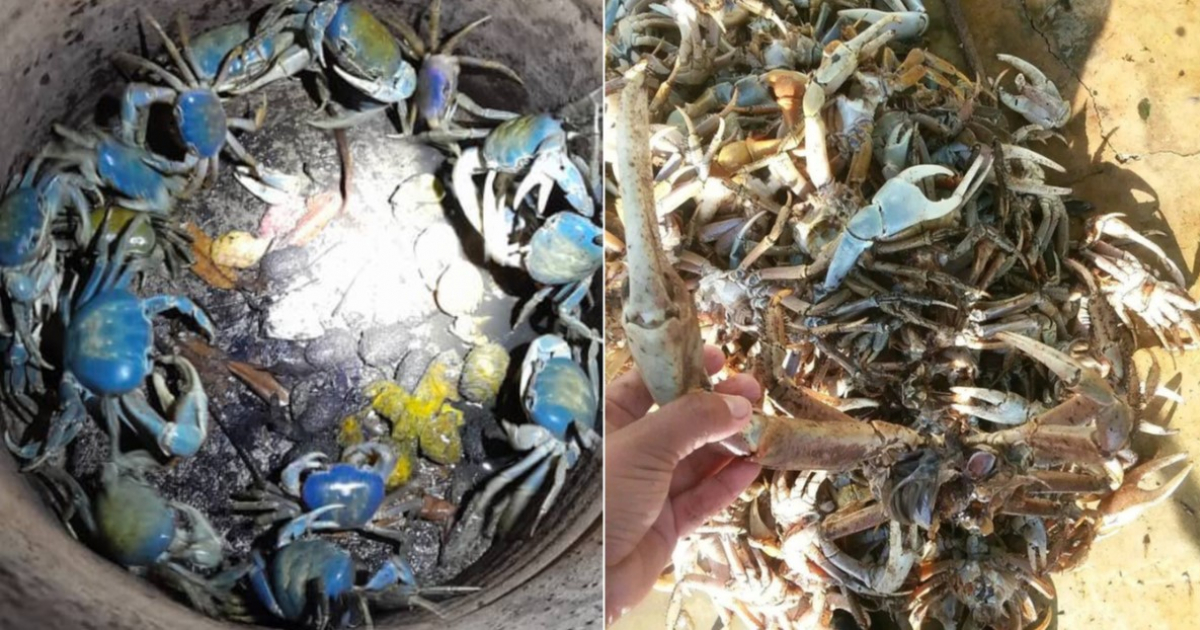
The food crisis in Guantánamo, exacerbated by the poor management of the Cuban regime, has forced residents to seek alternative means of subsistence, putting the blue crab in the municipality of Imías at risk due to the overexploitation of this local natural resource.
The Food Monitor Program (FMP) initiative pointed out this Thursday that the overfishing of blue crab in Imías is inseparable from the broader context of the food crisis in Cuba, which affects the entire population.
The FMP stated that the overexploitation of blue crab in Imías is the result of failures in economic and agricultural policies, which have created an excessive dependence on imports, inefficient distribution, and prohibitive food costs, forcing many families to seek more affordable and accessible alternatives.
This situation leads to the excessive capture of crabs, an unsustainable practice in the long term, but which becomes a necessary alternative for those who cannot afford to buy food in the market, the cited source pointed out.
In the municipality of Imías, Guantánamo, the hunting of the blue crab is a crucial activity that combines tradition and modernity, but faces significant challenges that jeopardize both the sustainability of the species and the food security of the region.
FMP mentioned that the introduction of artificial light sources has revolutionized their search, making it easier for anyone to capture it both during the day and at night.
"The ease with which these animals can now be located and caught has put the sustainability of the species at risk and has disturbed the ecological balance of the mangroves," they pointed out.
Several residents of that locality in eastern Cuba have confirmed this reality, noting that currently, both the most skilled and the most inexperienced can take home a large catch, something that only a few could achieve before.
"One does not look for crabs for the love of art; it's because there is a need, and in the end, if I don’t catch this, I won’t have food," one of them pointed out.
The absence of the blue crab in Imías, besides indicating serious problems in the balance of the mangroves, reflects a larger issue facing the Cuban people: how to balance the food needs of the population with the conservation of nature.
"The overexploitation of natural resources is a recurring problem in several regions of the country, where the need for subsistence collides with the urgency of conservation," noted FMP.
This is just one of the many manifestations of the worsening economic crisis in Cuba, which has led the population to adopt non-traditional eating practices.
The increase in the hunting of dogs and cats for human consumption has alarmed animal advocates who have pointed out the lack of protection for pets in a country with weak laws against abuse.
The multimedia platform El Toque published an extensive journalistic work that shows how cat consumption has increased in the province of Guantánamo.
"The naturalization of these events has raised concern, especially among animal protection societies in the province and pet owners," the website noted, warning that some people fear for the safety of their animals and prefer to keep them at home to protect them.
In this regard, she quoted Mayte, a member of BAC (Bienestar Animal Cuba), who explained that she doesn't let her cats go out to the garden for fear they might be stolen, and prefers to keep them safe inside the house, a measure that, she stated, is the only one that has kept pets safe in Guantánamo so far.
The promotion of cat meat sales on social media, along with the inaction of legal and health authorities, has generated outrage and concern both in this shelter and among other residents of the province.
What do you think?
COMMENTFiled under: